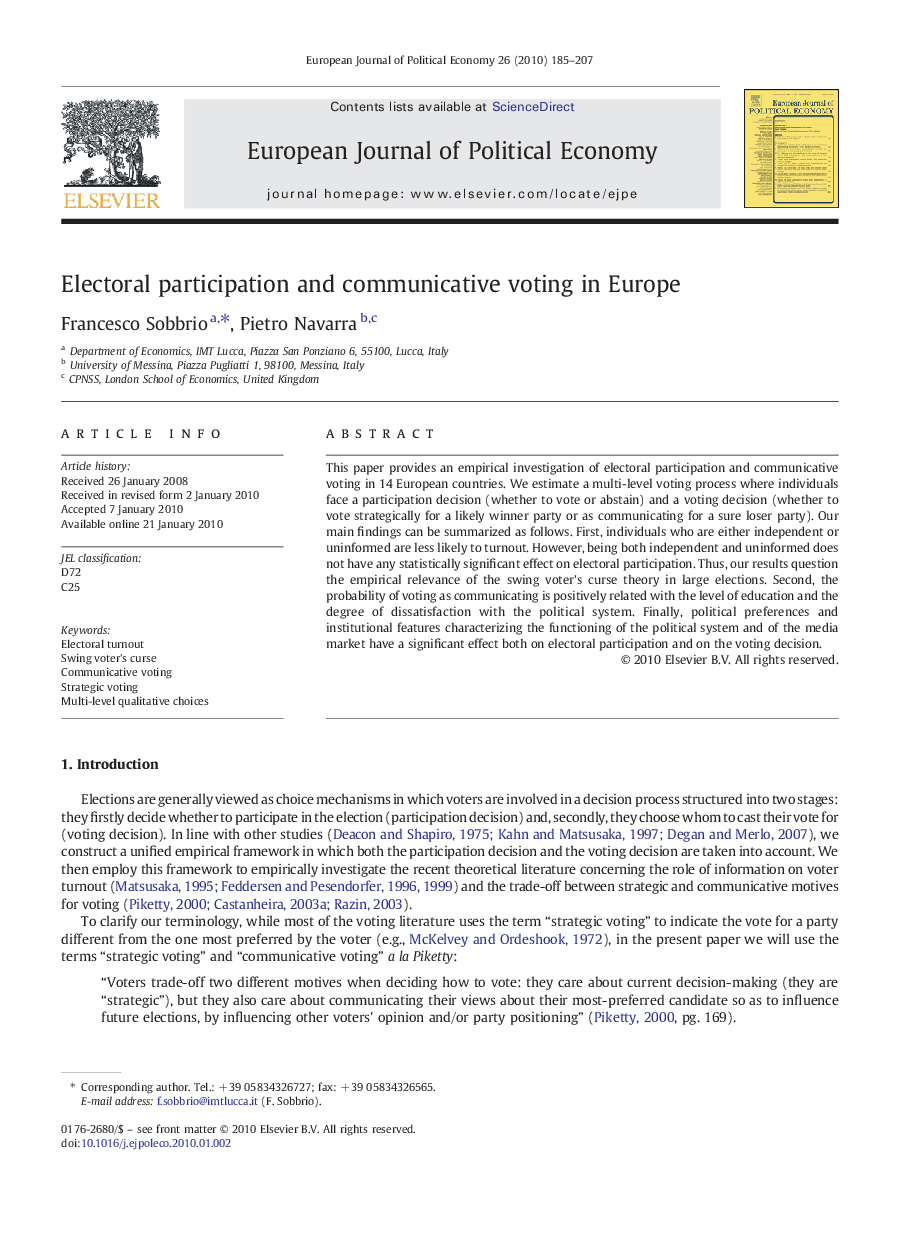| Article ID | Journal | Published Year | Pages | File Type |
|---|---|---|---|---|
| 5068223 | European Journal of Political Economy | 2010 | 23 Pages |
This paper provides an empirical investigation of electoral participation and communicative voting in 14 European countries. We estimate a multi-level voting process where individuals face a participation decision (whether to vote or abstain) and a voting decision (whether to vote strategically for a likely winner party or as communicating for a sure loser party). Our main findings can be summarized as follows. First, individuals who are either independent or uninformed are less likely to turnout. However, being both independent and uninformed does not have any statistically significant effect on electoral participation. Thus, our results question the empirical relevance of the swing voter's curse theory in large elections. Second, the probability of voting as communicating is positively related with the level of education and the degree of dissatisfaction with the political system. Finally, political preferences and institutional features characterizing the functioning of the political system and of the media market have a significant effect both on electoral participation and on the voting decision.
